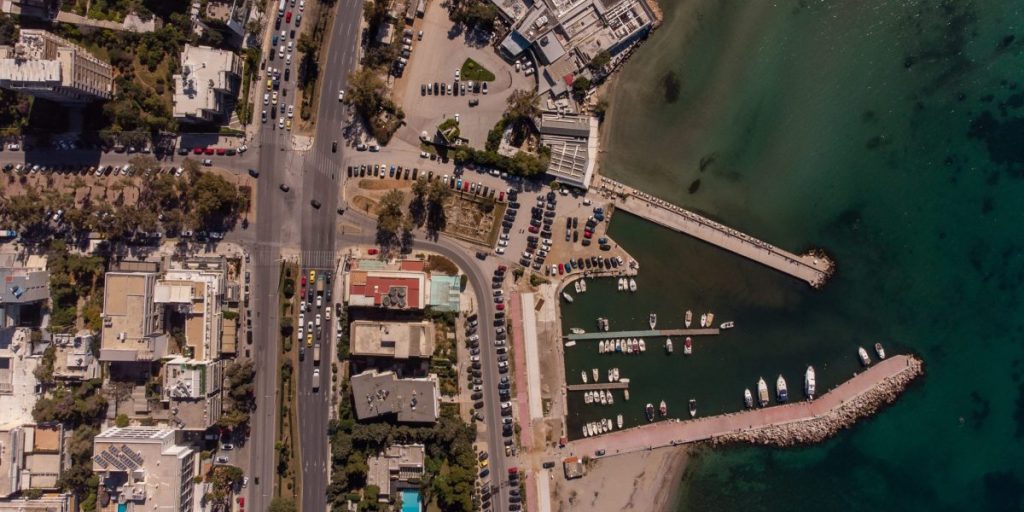
On the southern coast of the Greek capital, a long-awaited plan to transform the city’s former airport into Europe’s largest smart city is finally gaining momentum.
After a decade of delays, Ellinikon’s vision emerges. The Marina Tower, soon to become Greece’s first skyscraper, begins to rise. The iron skeletons of apartment buildings are taking shape. Standing on the pier, overlooking the Saronic Gulf on one side and the tower on the other, one can imagine the city of the future, which will have open spaces, sustainable energy sources and abundant green spaces that Athens currently lacks.
“In the early days of the project, there was justifiable mistrust,” Odysseas Athanasiou said in an interview. Athanasiou is the CEO of Lamda, a feature-rich development company.
Situated on 6,200 acres, 20 minutes from Athens, Ellinikon will transform both the coastline and the entire country. Similar projects are commonly seen in China or the United Arab Emirates and are a sign of Greece’s post-crisis revival and subsequent investor enthusiasm. Once completed in 2037, developers predict it will add 2.5 percentage points to Greece’s GDP, create up to 80,000 new jobs and generate tax revenues of more than 10 billion euros. It is also expected to attract an additional one million tourists a year, who will be able to choose between the Mandarin Oriental Hotel and the integrated casino resort as their accommodation.
Greece’s tourism sector has recovered from the Covid era, with 32 million visitors last year and a record number of arrivals expected in 2024.
For those who want to stay forever, 243 units. are already for sale and 140 are reserved. The first to sell out were the Marina Tower apartments, beach villas and condominiums. Earlier this month, Lamda announced that it had generated €641 million in property sales as of March last year. Most of the buyers were Greek citizens and the city is expected to house up to 20,000 people in approximately 10,000 residential buildings over the next 13 years.
By implementing the urban planning concept of a 15-minute city, residents of Ellinikon will be able to reach schools, parks, offices, shops and even the beach in less than a quarter of an hour. Waste, water and energy management software will be installed throughout the complex. “It’s a smart city,” Athanasiou said, adding, “We like to call it the ‘heaven zip code.’”
The process of launching Ellinikon was not smooth. When Lamda acquired the plot of land in 2014, parts of it were littered with the ruins of a former airport, including abandoned aircraft, while other areas were home to refugees and undocumented migrants. The embankment was dotted with nightclubs and long-forgotten sports facilities. Delays in the permitting process further delayed the matter, and the fact that Greece was effectively bankrupt when the project was proposed made it even more unlikely that it would ever get started.
“We had a construction sector in Greece that, due to the crisis, was at its lowest level in the last ten years,” Athanasiou explained. “People left the country and construction companies weren’t as strong as they used to be. Added to this situation was the increase in construction costs due to the energy crisis following the incident in Ukraine.”
Although these problems had subsided, Lamda still faced—and continues to face—labor shortages. When construction of the Ellinikon shopping center begins next year, about 7,000 workers will be needed. Lamda currently employs about 2,000 people and is in talks with contractors to import builders from other countries.


